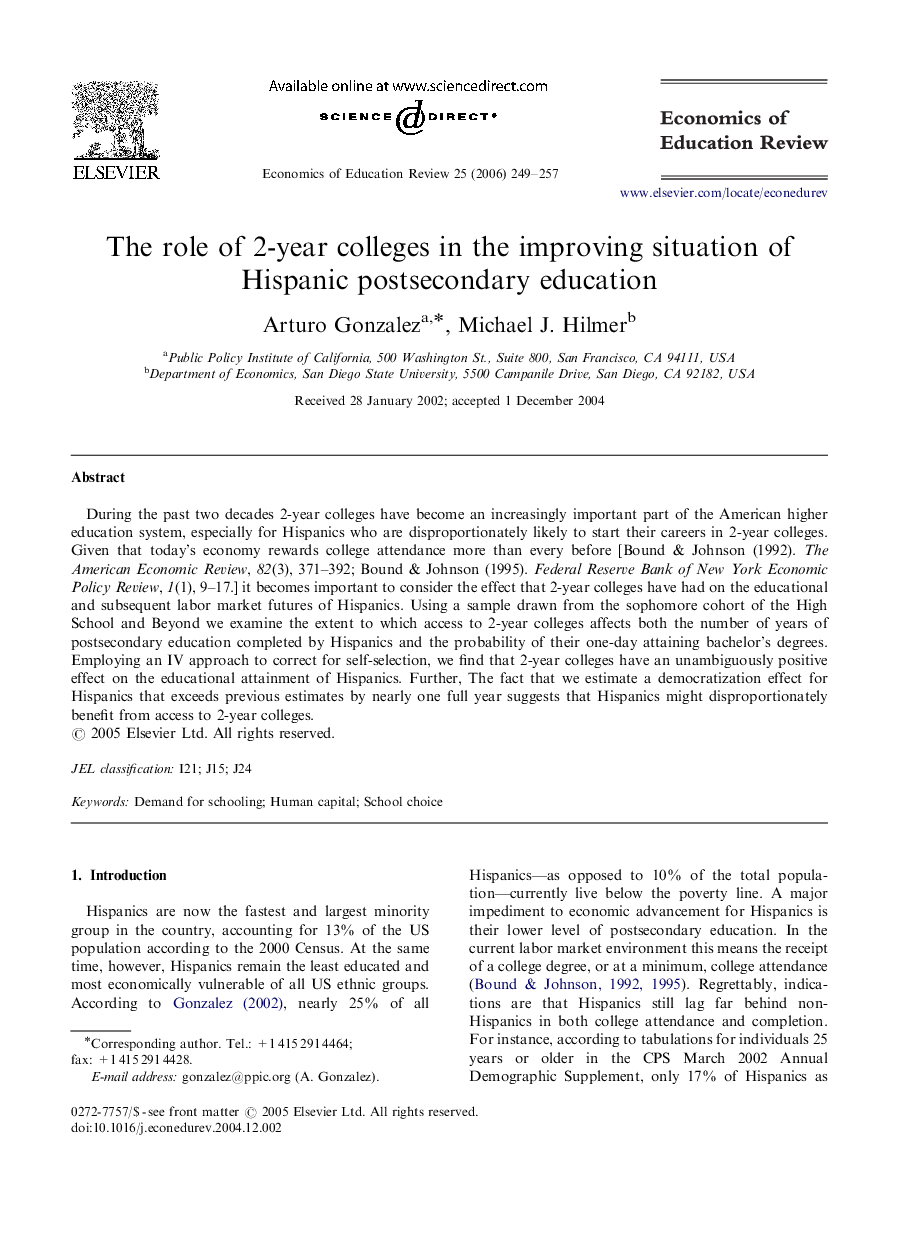| Article ID | Journal | Published Year | Pages | File Type |
|---|---|---|---|---|
| 354999 | Economics of Education Review | 2006 | 9 Pages |
During the past two decades 2-year colleges have become an increasingly important part of the American higher education system, especially for Hispanics who are disproportionately likely to start their careers in 2-year colleges. Given that today's economy rewards college attendance more than every before [Bound & Johnson (1992). The American Economic Review, 82(3), 371–392; Bound & Johnson (1995). Federal Reserve Bank of New York Economic Policy Review, 1(1), 9–17.] it becomes important to consider the effect that 2-year colleges have had on the educational and subsequent labor market futures of Hispanics. Using a sample drawn from the sophomore cohort of the High School and Beyond we examine the extent to which access to 2-year colleges affects both the number of years of postsecondary education completed by Hispanics and the probability of their one-day attaining bachelor's degrees. Employing an IV approach to correct for self-selection, we find that 2-year colleges have an unambiguously positive effect on the educational attainment of Hispanics. Further, The fact that we estimate a democratization effect for Hispanics that exceeds previous estimates by nearly one full year suggests that Hispanics might disproportionately benefit from access to 2-year colleges.
